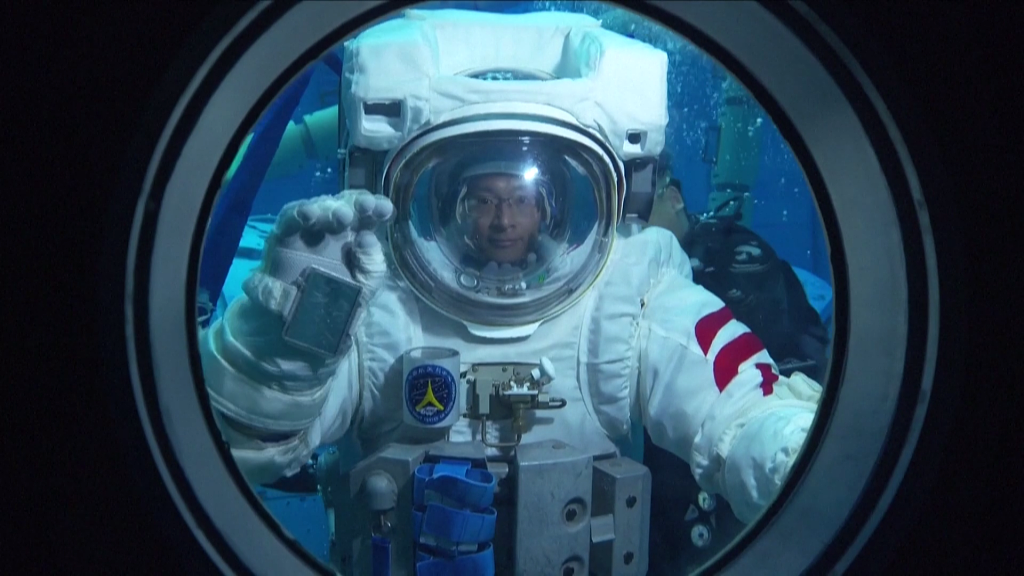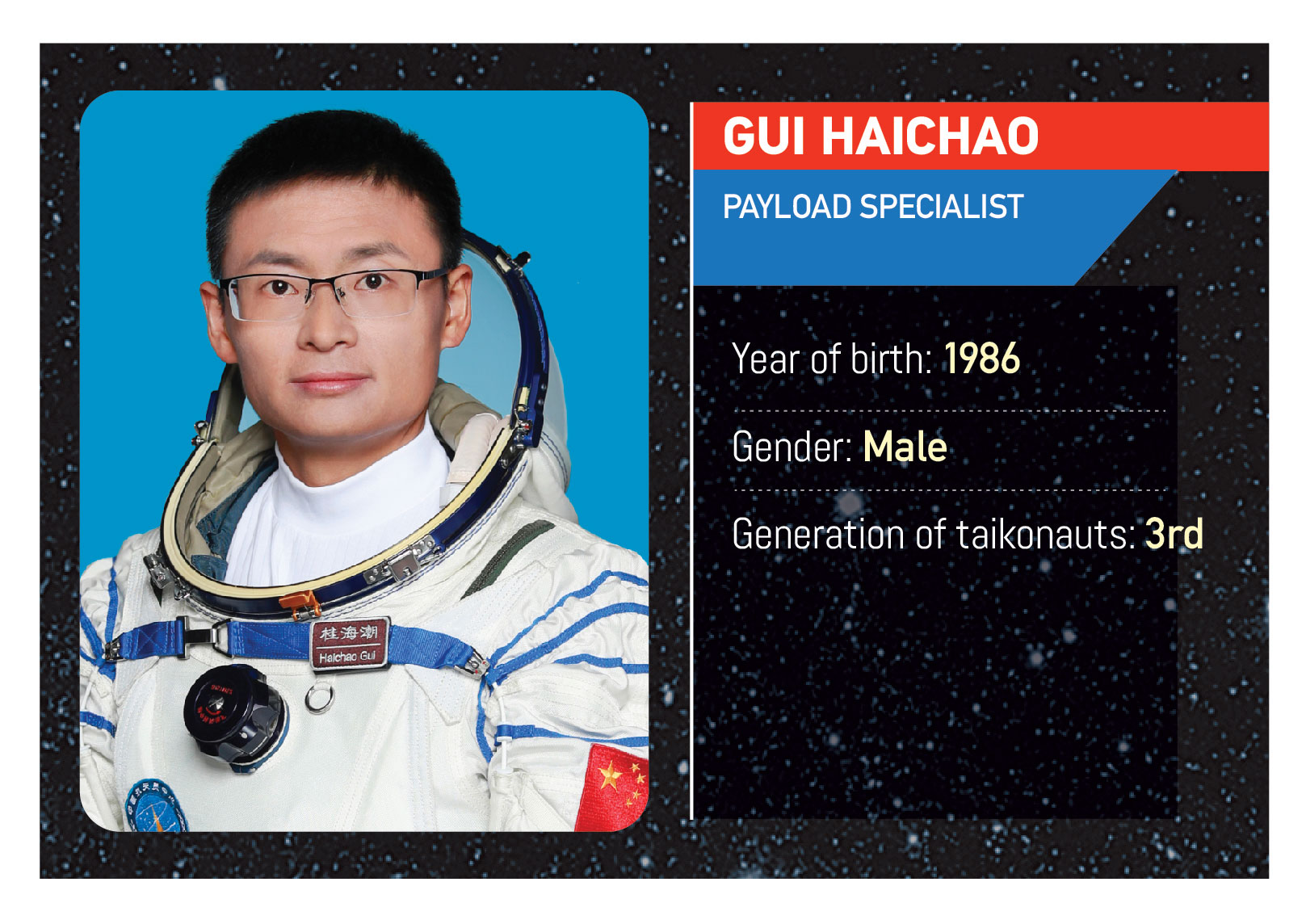
Taikonaut Gui Haichao takes underwater training. /CMG
Taikonaut Gui Haichao takes underwater training. /CMG
Monday's announcement of China's first taikonaut wearing glasses – Prof. Gui Haichao from Beihang University – came as a surprise to many social media users, who used to believe that exceptional eyesight is a must to go to space.
Almost all previous taikonauts in China have years, if not decades, of experience as a pilot, a job that requires one-of-a-kind physical and mental status, especially perfect vision.
In fact, the requirements for taikonauts are different from that for air force pilots. "It's more about mental health," said the State Administration of Science, Technology and Industry for National Defense (SASTIND) in an article posted on Monday.
SASTIND explained the dangers of wearing glasses during launch and return in space missions, during which vibrations in spacecraft may cause the glasses to fall off.
"During the launch and return, taikonauts are wearing spacesuits with their helmets on," the SASTIND said in the article. "It's impossible for them to put the glasses back on."
The glasses may hurt taikonauts or spacesuits when they fly around in the suits.
"You may have heard from flight safety instructions on airplanes that you have to take off your glasses during crash-landing," the article went on explaining. "It's for the same reason."

Glasses are much safer during the taikonauts' stay in the China Space Station, the SASTIND said, but they must take extra measures to keep the glasses attached to their heads because of the lack of gravity in space.
Wang Zhen, a senior engineer from the China Manned Space Agency (CMSA), confirmed to China Media Group (CMG) in an interview on Monday that Gui will not wear glasses during the launch of the Shenzhou-16 spacecraft.
Gui will join his colleagues – Jing Haipeng and Zhu Yangzhu – and go to the China Space Station for a five-month stay.
Gui is also the first payload specialist to go to the space station.
The Shenzhou-16 mission is scheduled to launch on Tuesday morning Beijing Time.
If the mission is a success, according to memes on social media, Prof. Gui will "watch his students from above."